
Alice O'Connor, better known by her pen name Ayn Rand, was a Russian-born American writer and philosopher. She is known for her fiction and for developing a philosophical system she named Objectivism. Born and educated in Russia, she moved to the United States in 1926. After two early novels that were initially unsuccessful and two Broadway plays, she achieved fame with her 1943 novel, The Fountainhead. In 1957, Rand published her best-selling work, the novel Atlas Shrugged. Afterward, until her death in 1982, she turned to non-fiction to promote her philosophy, publishing her own periodicals and releasing several collections of essays.

William Cuthbert Faulkner was an American writer known for his novels and short stories set in the fictional Yoknapatawpha County, based on Lafayette County, Mississippi, where Faulkner spent most of his life. A Nobel laureate, Faulkner is one of the most celebrated writers of American literature and often is considered the greatest writer of Southern literature.
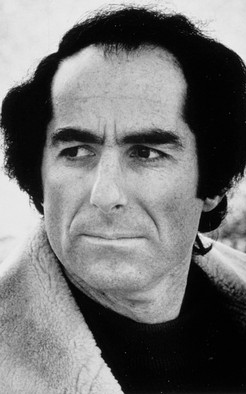
Philip Milton Roth was an American novelist and short story writer. Roth's fiction—often set in his birthplace of Newark, New Jersey—is known for its intensely autobiographical character, for philosophically and formally blurring the distinction between reality and fiction, for its "sensual, ingenious style" and for its provocative explorations of American identity. He first gained attention with the 1959 short story collection Goodbye, Columbus, which won the U.S. National Book Award for Fiction. Ten years later, he published the bestseller Portnoy's Complaint. Nathan Zuckerman, Roth's literary alter ego, narrates several of his books. A fictionalized Philip Roth narrates some of his others, such as the alternate history The Plot Against America.
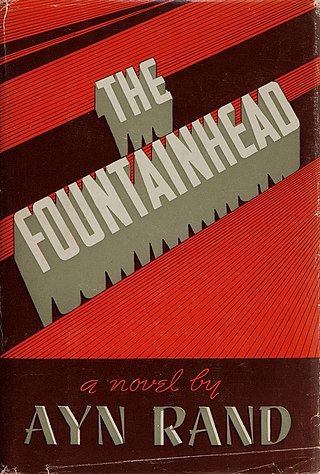
The Fountainhead is a 1943 novel by Russian-American author Ayn Rand, her first major literary success. The novel's protagonist, Howard Roark, is an intransigent young architect who battles against conventional standards and refuses to compromise with an architectural establishment unwilling to accept innovation. Roark embodies what Rand believed to be the ideal man, and his struggle reflects Rand's belief that individualism is superior to collectivism.

Richard Ford is an American novelist and short story writer, best known for his novels featuring Frank Bascombe.
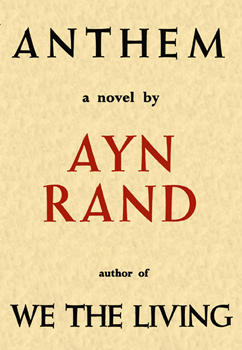
Anthem is a dystopian fiction novella by Russian-American writer Ayn Rand, written in 1937 and first published in 1938 in the United Kingdom. The story takes place at an unspecified future date when mankind has entered another Dark Age. Technological advancement is now carefully planned and the concept of individuality has been eliminated. A young man known as Equality 7-2521 rebels by doing secret scientific research. When his activity is discovered, he flees into the wilderness with the girl he loves. Together they plan to establish a new society based on rediscovered individualism.
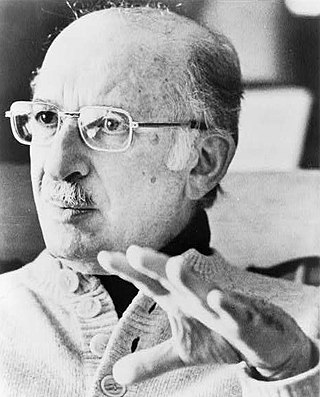
Bernard Malamud was an American novelist and short story writer. Along with Saul Bellow, Joseph Heller, Norman Mailer and Philip Roth, he was one of the best known American Jewish authors of the 20th century. His baseball novel, The Natural, was adapted into a 1984 film starring Robert Redford. His 1966 novel The Fixer, about antisemitism in the Russian Empire, won both the National Book Award and the Pulitzer Prize.
The PEN/Faulkner Award for Fiction is awarded annually by the PEN/Faulkner Foundation to the authors of the year's best works of fiction by living American citizens. The winner receives US$15,000 and each of four runners-up receives US$5000. Finalists read from their works at the presentation ceremony in the Great Hall of the Folger Shakespeare Library in Washington, D.C. The organization claims it to be "the largest peer-juried award in the country." The award was first given in 1981.
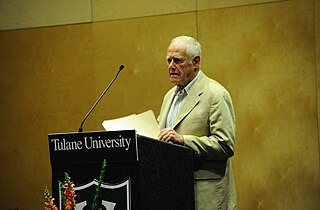
James Arnold Horowitz, better known as James Salter, his pen name and later-adopted legal name, was an American novelist and short-story writer. Originally a career officer and pilot in the United States Air Force, he resigned from the military in 1957 following the successful publication of his first novel, The Hunters.

Tobias Jonathan Ansell Wolff is an American short story writer, memoirist, novelist, and teacher of creative writing. He is known for his memoirs, particularly This Boy's Life (1989) and In Pharaoh's Army (1994). He has written four short story collections and two novels including The Barracks Thief (1984), which won the PEN/Faulkner Award for Fiction. Wolff received a National Medal of Arts from President Barack Obama in September 2015.

George Saunders is an American writer of short stories, essays, novellas, children's books, and novels. His writing has appeared in The New Yorker, Harper's, McSweeney's, and GQ. He also contributed a weekly column, American Psyche, to The Guardian's weekend magazine between 2006 and 2008.

Rabih Alameddine is an American painter and writer. His 2021 novel The Wrong End of the Telescope won the 2022 PEN/Faulkner Award for Fiction.
Ron Hansen is an American novelist, essayist, and professor. He is known for writing literary westerns exploring the people and history of the American heartland, notably The Assassination of Jesse James by the Coward Robert Ford (1983), which was adapted into an acclaimed film.
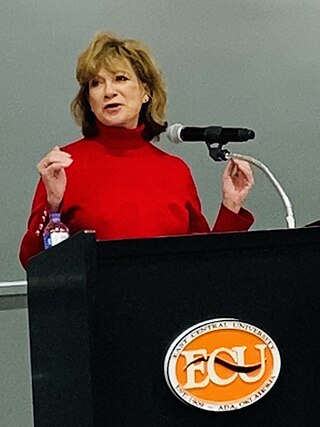
Rilla Askew is an American novelist and short story writer who was born in Poteau, in the Sans Bois Mountains of southeastern Oklahoma, and grew up in the town of Bartlesville, Oklahoma.

David Ebershoff is an American writer, editor, and teacher. His debut novel, The Danish Girl, was adapted into an Academy Award-winning film of the same name in 2015, while his third novel, The 19th Wife, was adapted into a television movie of the same name in 2010.

Jennifer Egan is an American novelist and short-story writer. Her novel A Visit from the Goon Squad won the 2011 Pulitzer Prize for Fiction and National Book Critics Circle Award for fiction. As of February 28, 2018, she is the president of PEN America.

Mohsin Hamid is a British Pakistani novelist, writer and brand consultant. His novels are Moth Smoke (2000), The Reluctant Fundamentalist (2007), How to Get Filthy Rich in Rising Asia (2013), Exit West (2017), and The Last White Man (2022).

Atlas Shrugged is a 1957 novel by Ayn Rand. It was her longest novel, the fourth and final one published during her lifetime, and the one she considered her magnum opus in the realm of fiction writing. Atlas Shrugged includes elements of science fiction, mystery, and romance, and it contains Rand's most extensive statement of Objectivism in any of her works of fiction. Rand described the theme of Atlas Shrugged as "the role of man's mind in existence". The book explores a number of philosophical themes from which Rand would subsequently develop Objectivism, including reason, property rights, individualism, libertarianism and capitalism, and depicts what Rand saw as the failures of governmental coercion.

Wilton Brad Watson was an American author and academic. Originally from Mississippi, he worked and lived in Alabama, Florida, California, Boston, and Wyoming. He was a professor at the University of Wyoming until his death. Watson published four books – two novels and two collections of short stories – to critical acclaim.

A Distant Shore is the seventh novel by Black British author Caryl Phillips, published in 2003 by Secker & Warburg in the UK and Knopf in the US. It was a finalist for the 2003 PEN/Faulkner Award. In the 2004 Commonwealth Writers' Prize it won the Best Book Prize in the Europe and South Asia category and was judged that year's overall Best Book.


















